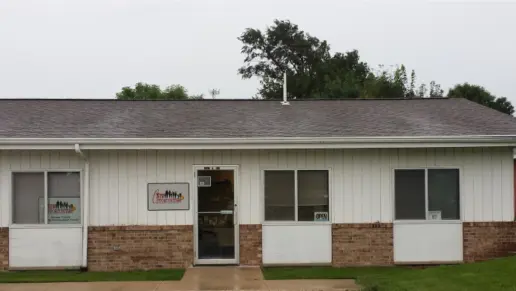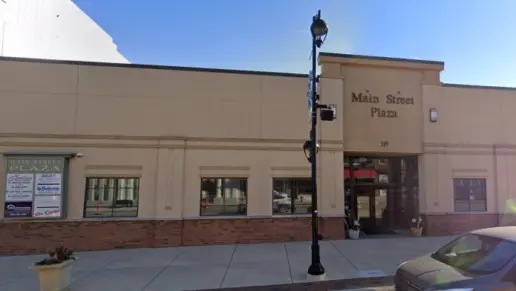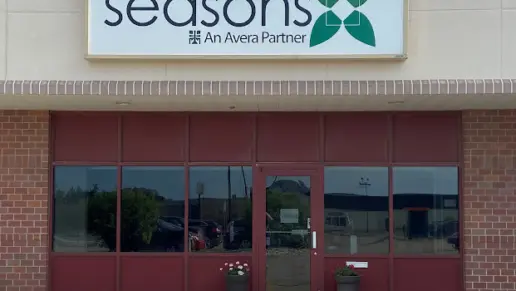Mental health is a sensitive issue and people in this country do not value or give the importance it deserves. It seems to me that this center does not contribute anything, neither help or awareness.
About Siouxland Mental Health Center
Siouxland Mental Health Center provides outpatient behavioral health care services for youth and adults in Sioux City, Iowa. Treatment programs include crisis intervention, patient stabilization, general outpatient programming, and aftercare planning and support.
Siouxland Mental Health Center offers dedicated services for children, adolescents, young adults, seniors, justice-involved persons, and persons with co-occurring addiction and mental illness. Referrals for acute inpatient care are available as needed.
Outpatient Programs
Clients in outpatient treatment receive medical and mental health assessments, personalized care planning, and comprehensive case management. Those requiring acute care, hospitalization, or supportive housing will be referred as needed. Clients engage in intensive, trauma-informed individual, group, and family counseling that draws on proven psychotherapeutic modalities, including CBT and DBT. The program promotes clients’ sustained sobriety through robust, age-specific, recovery-focused life-skills training that addresses topics such as coping, self-care, emotional regulation, and relapse prevention. Evidence-based complementary therapies, including EMDR and creative arts therapy, are available. Clients facing OWI charges may enroll in court-mandated programming.
Aftercare Services
Their aftercare services ensure a complete continuum of care aligned with clients’ evolving needs. These services may include step-down support, vocational and academic training, employment and housing assistance, and referrals for additional medical, mental health, and social service programs.
Payment Options
Siouxland Mental Health Center accepts private insurance, Medicare, Medicaid, sliding-scale payment schedules, and self-pay. Financial aid is available.
Latest Reviews
Rehab Score
Gallery
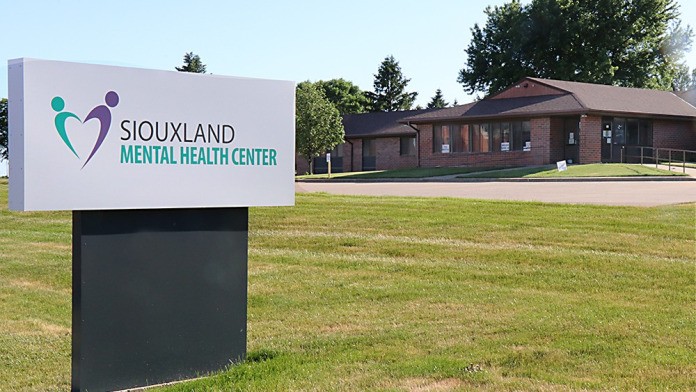
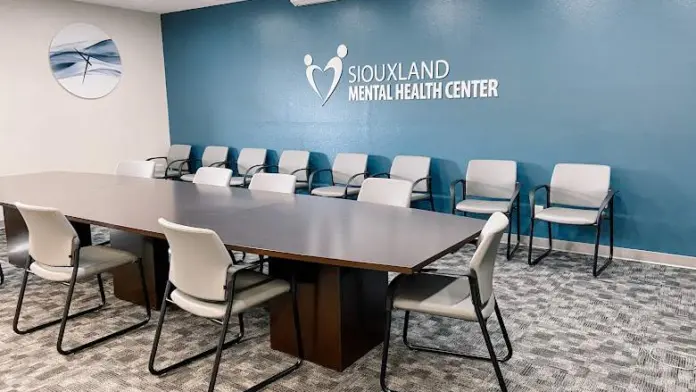
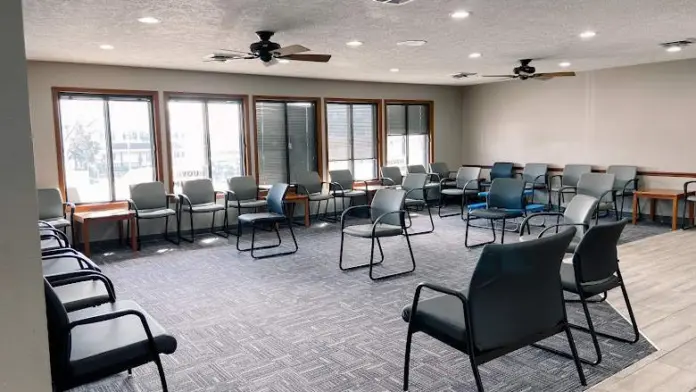
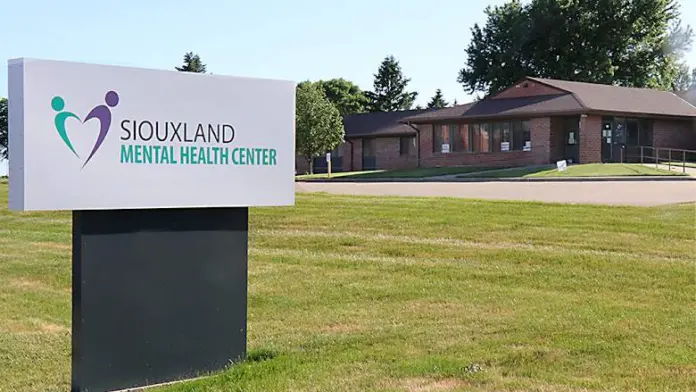
Location
Other Forms of Payment
Private insurance refers to any kind of healthcare coverage that isn't from the state or federal government. This includes individual and family plans offered by an employer or purchased from the Insurance Marketplace. Every plan will have different requirements and out of pocket costs so be sure to get the full details before you start treatment.
Self-pay involves paying for treatment out of your own pocket. You can use savings or credit, get a personal loan, or receive help from family and friends to fund your treatment. If you don't have insurance or your insurance plan doesn't cover a specific program, self-pay can help ensure you still get the care you need.
Financial aid can take many forms. Centers may have grants or scholarships available to clients who meet eligibility requirements. Programs that receive SAMHSA grants may have financial aid available for those who need treatment as well. Grants and scholarships can help you pai for treatment without having to repay.
Sliding scale payments are based on a client's income and family size. The goal is to make treatment affordable to everyone. By taking these factors into account, addiction recovery care providers help ensure that your treatment does not become a financial burden to you or your family, eliminating one barrier to care.
Medicare is a federal program that provides health insurance for those 65 and older. It also serves people under 65 with chronic and disabling health challenges. To use Medicare for addiction treatment you need to find a program that accepts Medicare and is in network with your plan. Out of pocket costs and preauthorization requirements vary, so always check with your provider.
Medicaid is a state based program that helps lower-income individuals and families pay for healthcare. Medicaid covers addiction treatment so those enrolled can use their coverage to pay for rehab. When a program accepts Medicaid the client often pays very little or nothing out of their own pocket.
Military members, veterans, and eligible dependents have access to specific insurance programs that help them get the care they need. TRICARE and VA insurance can help you access low cost or no cost addiction and mental health treatment. Programs that accept military insurance often have targeted treatment focused on the unique challenges military members, veterans, and their families face.
Addiction Treatments
Levels of Care
Treatments
Many of those suffering from addiction also suffer from mental or emotional illnesses like schizophrenia, bipolar disorder, depression, or anxiety disorders. Rehab and other substance abuse facilities treating those with a dual diagnosis or co-occurring disorder administer psychiatric treatment to address the person's mental health issue in addition to drug and alcohol rehabilitation.
Mental health rehabs focus on helping individuals recover from mental illnesses like bipolar disorder, clinical depression, anxiety disorders, schizophrenia, and more. Mental health professionals at these facilities are trained to understand and treat mental health issues, both in individual and group settings.
Programs



Clinical Services
Cognitive Behavioral Therapy (CBT) is a therapy modality that focuses on the relationship between one's thoughts, feelings, and behaviors. It is used to establish and allow for healthy responses to thoughts and feelings (instead of unhealthy responses, like using drugs or alcohol). CBT has been proven effective for recovering addicts of all kinds, and is used to strengthen a patient's own self-awareness and ability to self-regulate. CBT allows individuals to monitor their own emotional state, become more adept at communicating with others, and manage stress without needing to engage in substance abuse.
Dialectical Behavior Therapy (DBT) is a modified form of Cognitive Behavioral Therapy (CBT), a treatment designed to help people understand and ultimately affect the relationship between their thoughts, feelings, and behaviors. DBT is often used for individuals who struggle with self-harm behaviors, such as self-mutilation (cutting) and suicidal thoughts, urges, or attempts. It has been proven clinically effective for those who struggle with out-of-control emotions and mental health illnesses like Borderline Personality Disorder.
Group therapy is any therapeutic work that happens in a group (not one-on-one). There are a number of different group therapy modalities, including support groups, experiential therapy, psycho-education, and more. Group therapy involves treatment as well as processing interaction between group members.
In individual therapy, a patient meets one-on-one with a trained psychologist or counselor. Therapy is a pivotal part of effective substance abuse treatment, as it often covers root causes of addiction, including challenges faced by the patient in their social, family, and work/school life.
Trauma therapy addresses traumatic incidents from a client's past that are likely affecting their present-day experience. Trauma is often one of the primary triggers and potential causes of addiction, and can stem from child sexual abuse, domestic violence, having a parent with a mental illness, losing one or both parents at a young age, teenage or adult sexual assault, or any number of other factors. The purpose of trauma therapy is to allow a patient to process trauma and move through and past it, with the help of trained and compassionate mental health professionals.
Whether a marriage or other committed relationship, an intimate partnership is one of the most important aspects of a person's life. Drug and alcohol addiction affects both members of a couple in deep and meaningful ways, as does rehab and recovery. Couples therapy and other couples-focused treatment programs are significant parts of exploring triggers of addiction, as well as learning how to build healthy patterns to support ongoing sobriety.
Research clearly demonstrates that recovery is far more successful and sustainable when loved ones like family members participate in rehab and substance abuse treatment. Genetic factors may be at play when it comes to drug and alcohol addiction, as well as mental health issues. Family dynamics often play a critical role in addiction triggers, and if properly educated, family members can be a strong source of support when it comes to rehabilitation.
Learning healthy eating habits is an important part of drug rehab in Iowa. Nutrition therapy protects you from future substance use by giving your body the energy and strength it needs. It will help you avoid cravings or "off" feelings that can lead to relapse.
Addiction recovery works best with recreational therapy activities that improve your physical health and provide emotional support. This holistic approach improves your overall physical and mental health, creates a sense of community, and helps reduce your cravings. Each of these factors is necessary to foster long term sobriety.
Specialists in creative arts therapy may incorporate methods such as cognitive therapies along with the arts to treat substance use disorders in Iowa. This combination of talk therapy and expressive therapy can be an effective way to help clients gain self discovery and begin the process of healing and recovery.
Nicotine replacement therapy in Iowa is designed to prevent relapse when you quit smoking. It is a short term treatment method that minimizes withdrawal symptoms and cravings. Always take your therapy at the recommended dose, and speak to your doctor if you're unsure which type is best for your needs.
Contact Information
625 Court Street
Sioux City, IA 51101
